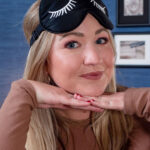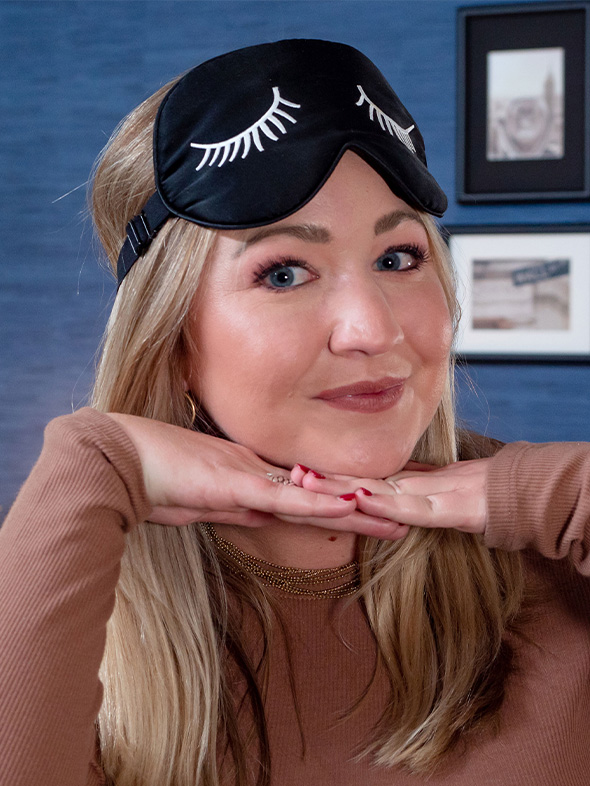If you’ve wound up here, chances are you’re trying to decide between buying a Nectar or DreamCloud mattress. I get it — these are two of the most popular bed-in-a-box mattresses on the market, known for being irresistibly plush and pressure-relieving. But which one is best for you and your sleep needs?
In this comparison, I’ll dive into everything these mattresses bring to the table, as well as some areas they fall short. We’ll take a look at what’s inside these beds, how it feels to sleep on them, and how they performed on tests such as motion isolation, edge support, cooling, and more.
Short on time? Skip down to my comparison summary.
Nectar vs DreamCloud
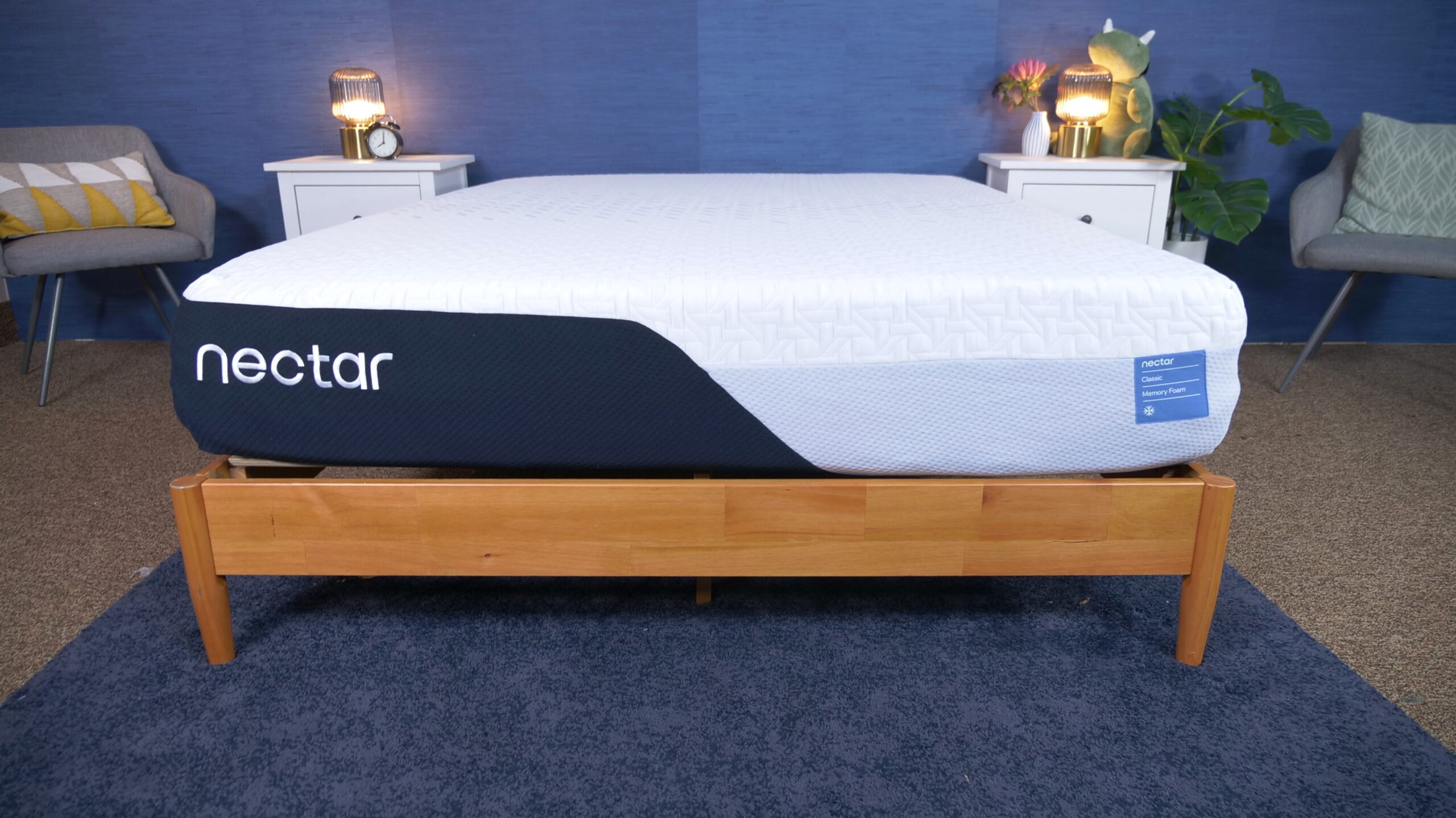
|
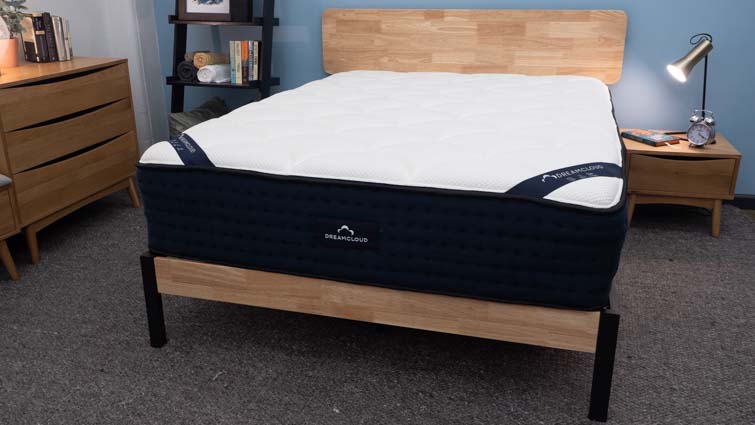
|
|
| Nectar Mattress | DreamCloud Original Mattress | |
| Rating | ||
| Firmness | Medium-firm: 6.5/10 | Medium-firm: 6.5/10 |
| Material | Foam | Hybrid |
| Cooling | — | |
| Best For |
Side Sleepers, Back Sleepers, Stomach Sleepers, Back Pain, Couples
|
Side Sleepers, Back Sleepers, Stomach Sleepers, Hot Sleepers, Seniors
|
Let’s start with a quick overview of who might like the Nectar and DreamCloud may be ideal for.
| Nectar is best for… | DreamCloud is best for… |
| Side sleepers | Hot sleepers |
| People with shoulder pain | Combination sleepers |
| Memory foam lovers | Back sleepers |
Nectar vs. DreamCloud: Comparison Video

Nectar vs DreamCloud: Top Similarities
- Policies: Nectar and DreamCloud both ship for free, have 365-night trial periods, and lifetime warranties.
- Pressure relief: These mattresses were both built with pressure relief in mind, meaning they’re engineered to alleviate tension at sensitive areas along your body.
- Price: The Nectar and DreamCloud are priced very similarly and are considered affordable mattresses. Click here to skip down to the pricing chart.
Nectar vs DreamCloud: Top Differences
- Construction: The DreamCloud is a hybrid mattress made with foam layers and pocketed coils, whereas the Nectar is a strictly all-foam mattress.
- Cooling: The DreamCloud sleeps cooler than the Nectar due to the inclusion of pocketed coils, which promote airflow throughout the mattress.
- Feel: The DreamCloud has an “on” the bed feeling, while the Nectar has more of an “in” the bed feeling. You’ll feel more sinkage on the Nectar and feel hugged by the foams. The DreamCloud will have you more propped up.
Nectar vs DreamCloud: Construction & Feel Differences
Now that you know their main similarities and differences, let’s jump into how the Nectar and DreamCloud actually feel. To do this, I’ll test these mattresses for different feel factors, such as firmness, pressure relief, bounce, and sinkage.
Before we start, it’s important to note that all of these factors are inherently subjective, and they can change a lot depending on one’s body size, shape, and weight.
What’s the Firmness Difference?
Since every sleeper is going to experience firmness a little differently (depending on body shape, size, weight, and your preferred sleeping positions), I always like to invite a few of my coworkers — all of whom are Certified Sleep Science Coaches — to test out the bed along with me. Once we’ve each given it a look, we share our personal firmness ratings with one another, and then average them out together for the scores you see below.

We rate our mattresses on a scale of 1 to 10, with 1 being the softest and 10 being the firmest. Our industry standard rating for a true medium-firm mattress is 6.5 out of 10. When scoring the Nectar’s firmness, we had a bit of variation in our responses. We ended up landing on an average firmness rating of 6 out of 10 on the firmness scale. That means the Nectar is just a bit softer than average. We could feel ourselves gradually sinking into the medium-soft foam layers and experiencing a hugging sensation.
When scoring the DreamCloud’s firmness, my testers and I noticed that it was definitely on the firmer side of the scale, but still had a bit of sinkage in the top foam layers. We rated the DreamCloud an average of 7 out of 10, meaning this is a firmer mattress than the all-foam Nectar. This is likely due to the layer of individually wrapped coils, which create a lot of lift and prevent you from sinking in too much.
What Does Each Mattress Feel Like?
You now know where these mattresses fall on our firmness scale; the Nectar scored a 6 out of 10 and the DreamCloud scored a 7 out of 10. But what do these numbers really mean? What do these mattresses feel like when lying down on them?
When I laid down on the Nectar, I initially thought it was firmer than a 6 out of 10. However, I then felt myself begin to sink into the thick layers of memory foam and experience gentle pressure relief. Regardless of my sleeping position, I could feel myself sinking deeply into the mattress, with the memory foam contouring my curves. This feeling could be especially ideal for sleepers struggling with shoulder pain, as the soft foams gently cradle that area. Since the Nectar is quite doughy, some combination sleepers may feel trapped in its layers when trying to switch sleeping positions. However, I personally did not struggle to move around on this mattress.
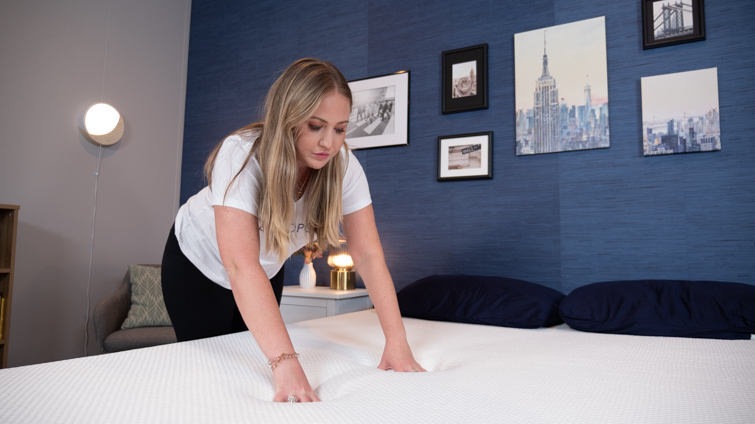
The feel of the DreamCloud mattress is largely driven by the pocketed coil system. This feature does quite a lot to lift the sleeper up and out of the structure. Unlike the Nectar, you likely won’t find much sinkage and body contouring. I found some slight sinkage in the top foam layers, but the pocketed coils kept my body lifted into alignment. Sleepers with back pain should feel some relief on this bed because it propels the spine into neutral alignment. The mobility on the DreamCloud is fantastic; it’s super-easy to move around on, which combination sleepers can surely appreciate. These coils also give the bed a bit of bounce, which you’re unlikely to find in all-foam mattresses.
How Does The Construction Differ?
Take a peek inside these mattresses and their layers of construction.
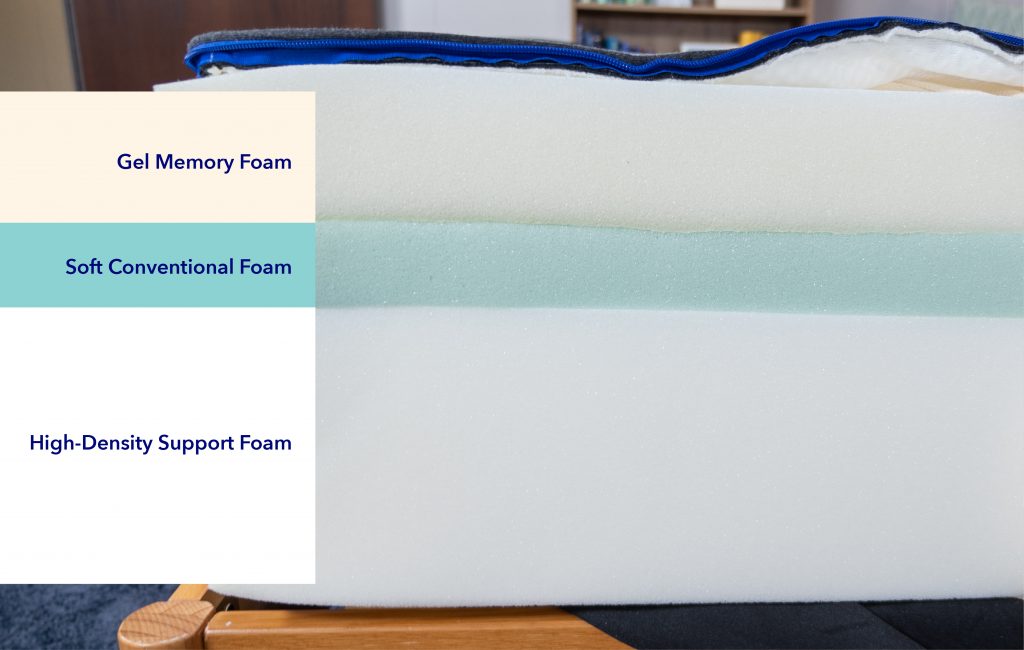
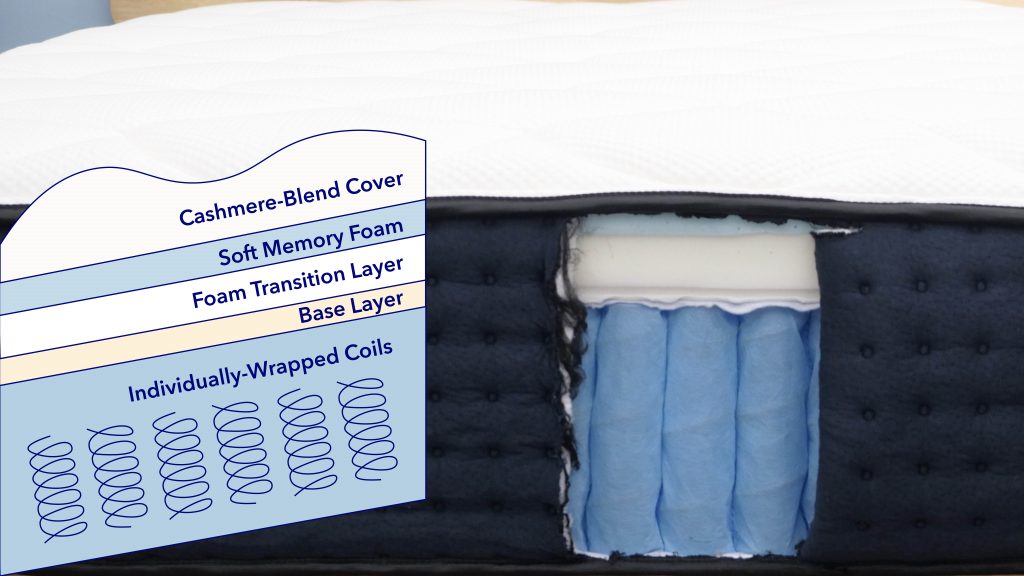
Nectar vs DreamCloud: Per Body Type
Every mattress will feel different to sleepers depending on their individual preferences and attributes, like body weight and sleeping position. Below, we’ll take a look at how the Nectar and DreamCloud mattresses perform for a variety of sleepers.
Nectar Body Weight Scale
| Body Weight | Side | Back | Stomach |
|---|---|---|---|
| Light (under 130lbs) |
unpleasant | good | good |
| Average (130-250lbs) |
excellent | excellent | unpleasant |
| Heavy (over 250lbs) |
unpleasant | unpleasant | unpleasant |
| Body Weight: Light (under 130lbs) | |
|---|---|
| Side Sleeper | unpleasant |
| Back Sleeper | good |
| Stomach Sleeper | good |
| Body Weight: Average (130-150lbs) | |
| Side Sleeper | excellent |
| Back Sleeper | excellent |
| Stomach Sleeper | unpleasant |
| Body Weight: Heavy (over 250lbs) | |
| Side Sleeper | unpleasant |
| Back Sleeper | unpleasant |
| Stomach Sleeper | unpleasant |
DreamCloud Body Weight Scale
| Body Weight | Side | Back | Stomach |
|---|---|---|---|
| Light (under 130lbs) |
good | good | good |
| Average (130-250lbs) |
good | excellent | unpleasant |
| Heavy (over 250lbs) |
unpleasant | good | unpleasant |
| Body Weight: Light (under 130lbs) | |
|---|---|
| Side Sleeper | good |
| Back Sleeper | good |
| Stomach Sleeper | good |
| Body Weight: Average (130-150lbs) | |
| Side Sleeper | good |
| Back Sleeper | excellent |
| Stomach Sleeper | unpleasant |
| Body Weight: Heavy (over 250lbs) | |
| Side Sleeper | unpleasant |
| Back Sleeper | good |
| Stomach Sleeper | unpleasant |
Nectar vs DreamCloud Comparing Mattress Performance
Here at Sleepopolis, our team of Certified Sleep Science Coaches put every mattress we review through a series of tests. These tests help give us an objective view of who these mattresses could be good for, as well as what it’s like to sleep on them every night. Below, I’ll discuss how the Nectar and DreamCloud performed on tests like cooling, motion transfer, edge support, and more.
Temperature
When it comes to cooling, I had low expectations for the Nectar due to its memory foam construction, which has a reputation for trapping heat. However, I was pleasantly surprised with how cool the Nectar slept, which is likey due to the inclusion of a cooling gel-foam comfort layer. For a memory foam mattress, these results are impressive.
When sleeping on the DreamCloud, I found it was even more cooingl than the Nectar, which we can credit to its construction. Like the Nectar, I could feel cooling capabilities from the gel memory foam, but the pocketed coils in the DreamCloud do the most heavy lifting. These coils allow air to flow through the mattress instead of getting trapped in its layers. When laying on this bed, it definitely felt cool and breathable. I can see this mattress being an excellent choice for hot sleepers and anyone prone to overheating at night.
Motion Isolation
If you sleep with a partner, pet, or child, you may be familiar with sleep disturbance from their tossing and turning. A mattress with low motion transfer can isolate motion and prevent it from traveling to the other side of the bed. We determine motion isolation using a human test, a wine test, and a seismometer test.
The Nectar did an excellent job at isolating motion when rolling around on the mattress with my colleague – we didn’t feel each other’s movement at all. I then placed a wine glass on the mattress and observed how much the liquid moved when I switched between sleeping positions. There was very little wine movement during this test, which is a good sign. The final test involves dropping a 10-pound steel ball from gradually increasing heights. A seismometer measures the disturbance and displays the results on a graph. The seismometer results were really impressive. Overall, the Nectar did a great job at isolating motion, and I don’t foresee motion-related disturbance being an issue.
I performed the same human, wine, and seismometer tests on the DreamCloud to assess its motion isolation capabilities. When performing the human test with my colleague, I couldn’t feel them rolling around on the other side of the bed, so I had high hopes. However, this is a hybrid mattress, which has a reputation for high motion transfer, so I was skeptical. The seismometer confirmed my suspicions and showed a substantial amount of disturbance on the graph from the springs. I think you’re likely to be woken up by your partner’s significant movement at night, like getting in and out of bed. Typical tossing and turning shouldn’t cause too much sleep disturbance unless you are an especially light sleeper.
Edge Support
A mattress with great edge support will be just as sturdy along the perimeter as it is in the center. Having strong edge support can prevent a mattress from sagging prematurely. You can also spread out and sleep right near the edges, which can make the mattress feel bigger.
When I sat on the edge of the Nectar, I immediately felt it sink beneath my weight. I used a yardstick to measure the sinkage and found that the top layer had collapsed a full eight inches. I didn’t feel very supported when sleeping near the edge, which tells me that the Nectar doesn’t have great edge support.
The DreamCloud performed significantly better on the edge support test. The individually wrapped coils put in the work here and keep the mattress strong across the entire surface. I didn’t feel like I was slipping off the mattress when sitting on the edge, and there was very minimal sagging. Overall, the DreamCloud has strong edge support.
Pressure Relief
We test pressure relief by rolling a specialized mat onto the surface of the mattress and then laying on it in different sleep positions. The mat senses pressure buildup and translates the results into a graphic using thermal imaging. Areas showing blue to green indicate low pressure, and areas with yellow to red indicate high pressure.
As you can see from the blue and green on the graphic below, the Nectar does a good job at relieving pressure along the back, shoulders, and hips. This bed provides a lot of sinkage, so it can really cradle those sensitive pressure points.
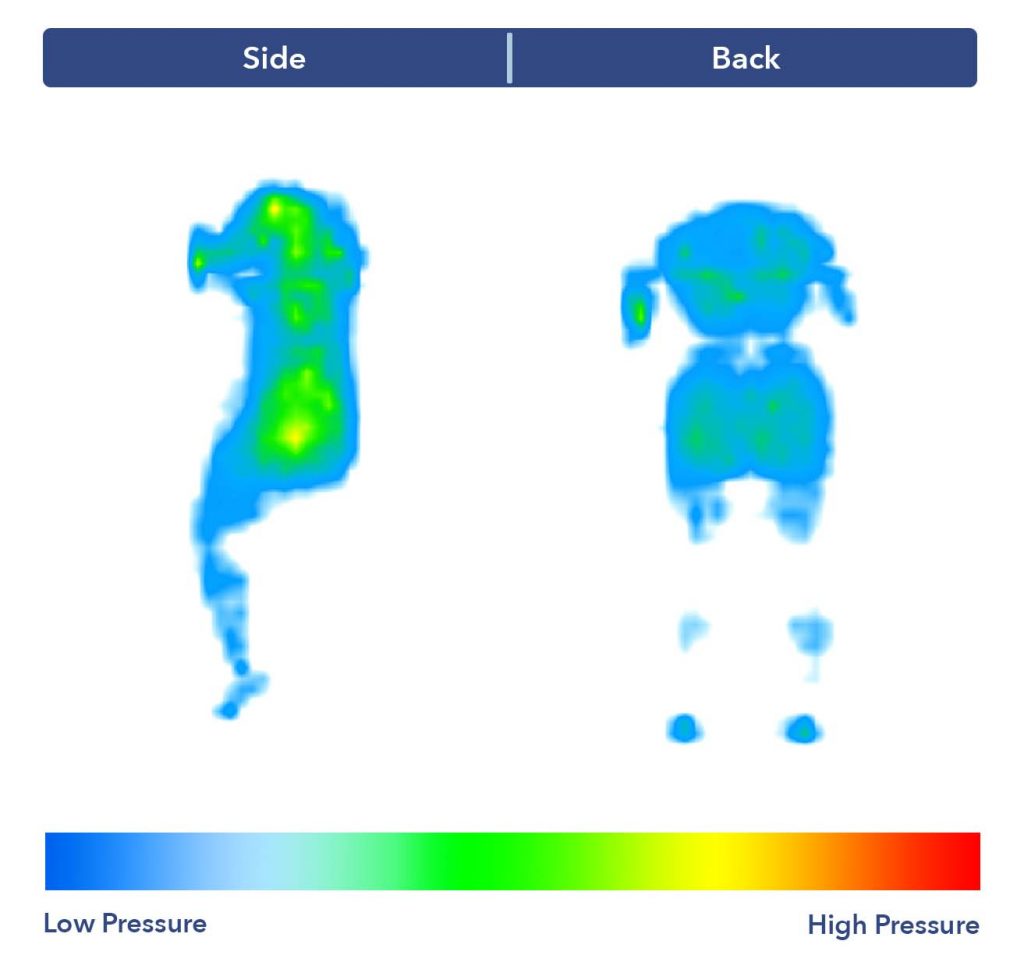
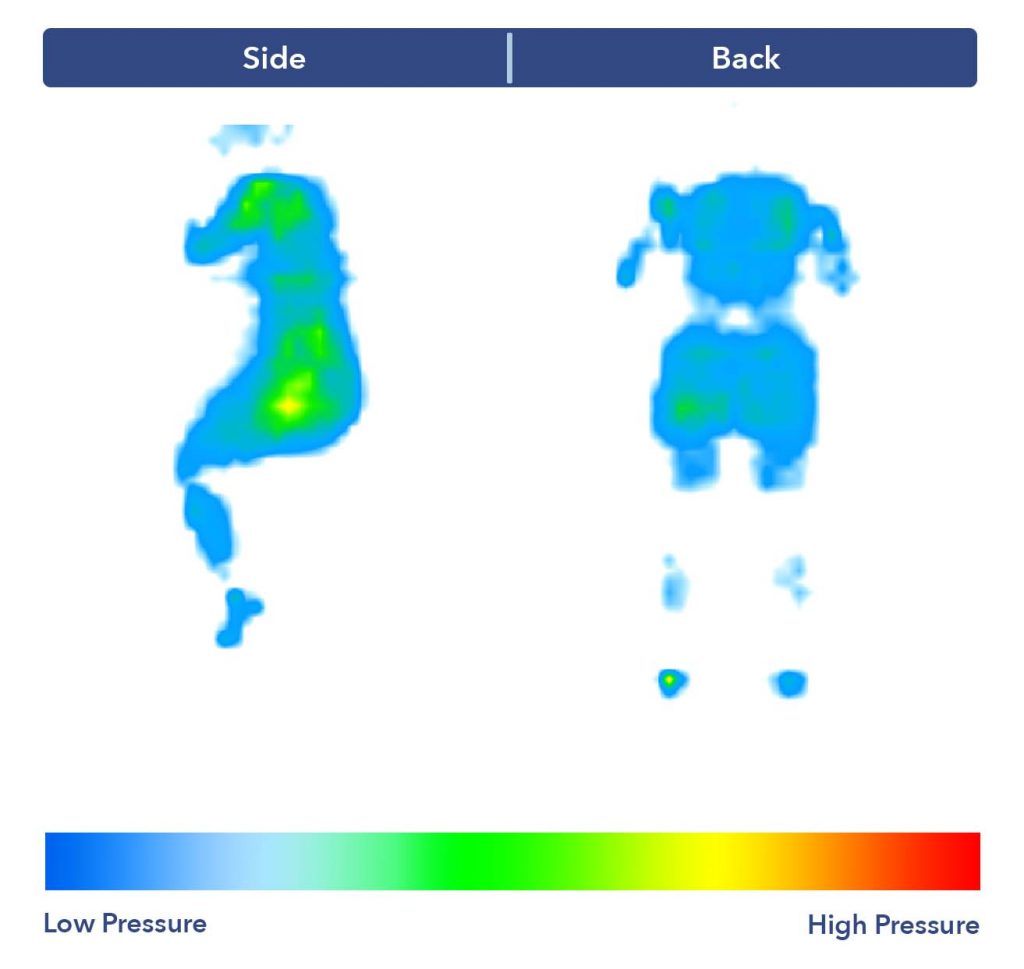
The DreamCloud did a great job at relieving pressure in the lower back. The top foam layers filled in the space at my lumbar region and provided soothing pressure relief. There’s a bit of yellow at the hip region, which indicates a build up of pressure in this area. This mattress may be a bit too firm to relieve hip pressure when side sleeping.
Pain Relief
The pressure maps above can indicate how well these mattresses alleviate pain. When there’s low pressure buildup in a specific area, it’s a good indication that you won’t experience pain.
I think any sleeper with shoulder pain will find relief on the Nectar. I felt plenty of sinkage at the shoulders, which should help relieve pain. Similarly, I found relief in the back and hip region and would recommend this mattress to anyone struggling with this type of pain. I will note that sleepers with severe hip problems may want an even softer mattress for additional cushioning.
I really liked the DreamCloud for lower back pain. The top layers of foam cushioned my lumbar region and I felt a lot of relief. The blue and green on the pressure map indicates a bit of relief for shoulder pain, as well. However, I don’t think the DreamCloud is soft enough for sleepers with hip pain – I could feel pressure building in this area.
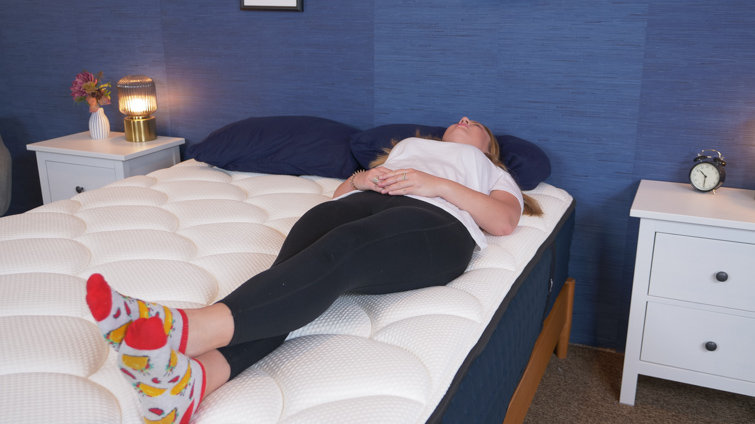
Durability
When we assess durability, we take a peek at the mattress’s construction and examine the quality of the materials. We also take edge support into consideration, as this can indicate whether the mattress is prone to sagging.
As we know, the Nectar is an all-foam mattress with three distinct foam layers. The seven inches of high-density support foam put in a lot of work here. All Nectar foams are also CertiPUR-US certified, which adds credit to their durability. However, the lack of edge support in this mattress is concerning, and I feel like premature sagging may be an issue.
I would definitely classify the DreamCloud as a durable mattress. The DreamCloud’s main support system is its tall section of individually wrapped coils. These coils are extremely supportive and make the mattress strong and stable. The sturdy edge support is another indicator that this bed will stand strong for a long time.
Company Policies
The fine print surrounding a potential mattress could help you determine if it’s right for you. The company’s customer service skills can also play a large role in your buying experience. Check out the Nectar and DreamCloud policies below and how I rated their customer service. Possible scores include stellar, great, satisfactory, and poor.
Nectar Policies
- Trial Period – 365-night sleep trial
- Shipping – Free shipping
- Mattress Warranty – Lifetime warranty
DreamCloud Policies
- Trial Period – 365-night sleep trial
- Shipping – Free shipping
- Mattress Warranty – Lifetime warranty
Nectar Sleepopolis Customer Service Rating
Stellar: I gave Nectar a stellar score because they were effortless to connect with both online through their website’s chat feature and on the phone. I asked a simple question about shipping through the chat feature, and the representatives were friendly and quick to help. The representative I spoke to was knowledgeable about all things Nectar, and I felt like they really cared about my customer experience. I appreciated that they took their time with me and didn’t disconnect until they confirmed that I had no further questions.
DreamCloud Sleepopolis Customer Service Rating
Stellar: DreamCloud got a Stellar rating because when I asked a question in their website’s chat function, the representative sent back very detailed information and was eager to answer further questions. The representative seemed like a true DreamCloud expert, and I felt confident that they could answer any obscure question I threw their way. They were willing to walk me through the shipping and delivery process and explain the details of the trial period. I also appreciate that DreamCloud customer service is available via phone seven days a week.
Comparing Nectar vs DreamCloud Price
Check out the table below to compare prices and sizes. You can also use our DreamCloud coupon code or current Nectar coupon to save a little bit of money.
Prices listed are before discount or offer for each size.
| Size | Nectar | DreamCloud |
|---|---|---|
| Twin | $599 | $799 |
| Twin XL | $769 | $999 |
| Full | $799 | $1,099 |
| Queen | $999 | $1,199 |
| King | $1,299 | $1,499 |
| California King | $1,299 | $1,499 |
| Split King | $1,338 | N/A |
Nectar vs DreamCloud
Product
Firmness
Score

Product
Firmness
Score
Other Nectar and DreamCloud Mattress Comparisons
Take a look at a few other mattress brands and models these beds are commonly compared to.
DreamCloud
- DreamCloud Premier vs Saatva
- DreamCloud vs WinkBed
- DreamCloud vs Purple
- DreamCloud vs Casper
- DreamCloud vs Nectar
Nectar
- Nectar vs Casper
- Nectar vs Tuft & Needle
- Nectar vs Purple
- Nectar vs Leesa
- Nectar vs Layla
- Nectar vs GhostBed
- Nectar vs Puffy
Comparing Other Mattress Models
Nectar Sleep and DreamCloud both offer a variety of mattress models that you might be interested in. Let’s take a quick look at them here.
Nectar vs DreamCloud Frequently Asked Questions
What is a lifetime warranty?
Both the Nectar and the DreamCloud come with a lifetime warranty, which shows that these brands are confident their mattresses will last you a very long time. But if your mattress begins to sag, deteriorate, or is simply subjected to normal wear and tear, you’re eligible to replace it regardless of how long you’ve owned it.
How do the Nectar and DreamCloud mattresses ship?
Both Nectar Sleep and DreamCloud offer free shipping on mattresses.
Is the DreamCloud firmer than the Nectar?
Yes, the DreamCloud falls at a 7 on our mattress firmness scale, where 1 is the softest and 10 is the firmest. The Nectar is significantly softer, landing at a 6 on the firmness scale.
Are the Nectar and DreamCloud mattresses good for hot sleepers?
Both mattresses contain a layer of cooling gel-infused foam. However, the DreamCloud contains pocketed coils, which add airflow and make for a cooler mattress. I think hot sleepers could be comfortable on either mattress, but those especially prone to overheating may prefer the DreamCloud.
What are the return policies for the Nectar and DreamCloud mattresses?
Both Nectar and DreamCloud will allow you to request a return no earlier than 30 days after delivery and no later than 365 days after delivery.
As we wrap up this comparison, I’d like to highlight my favorite things about the Nectar mattress as well as some of my complaints.
Finally, I’d like to call out my favorite things about the DreamCloud mattress and a few of my complaints.



























